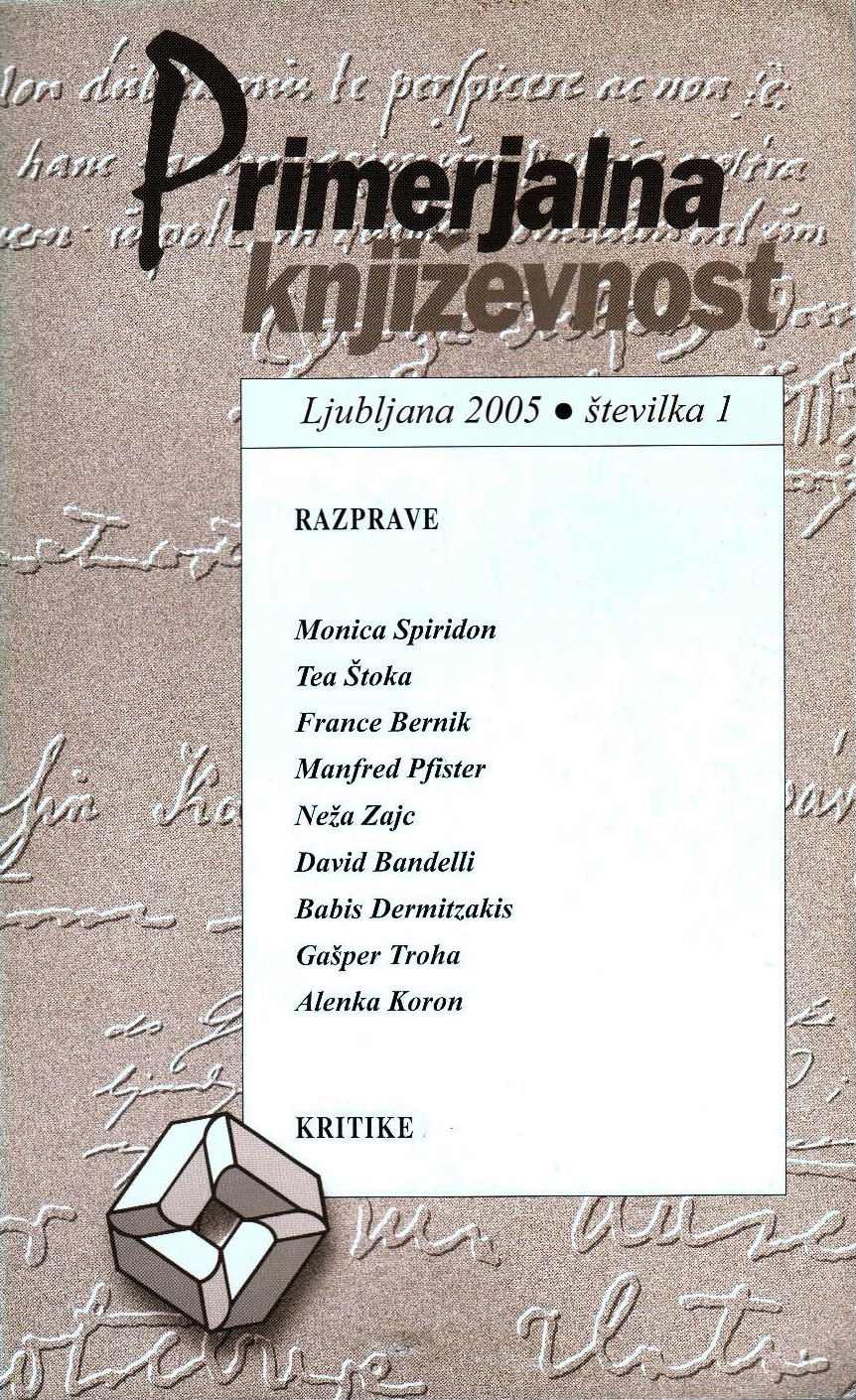Stopnja fikcionalizacije v Dnevniku Andreja Čeboklija
Ključne besede:
avtobiografija, avtobiografska literatura, dnevnik, dnevniška književnost, fikcionalnost, slovenska književnost, Čebokli, AndrejPovzetek
Prispevek se najprej ukvarja z opredelitvijo pisateljskega dnevnika kot predmeta raziskovanja v literarni vedi. Na podlagi poznanih virov iz literarne znanosti in raziskav, ki so jih opravili teoretiki na nacionalni in evropski ravni, skuša članek postavljati temelje za teorijo dnevniških zapiskov in definirati perspektive raziskovanja. Drugi del raziskave se zaustavlja ob Dnevniku Andreja Čeboklija in teorijo aplicira predvsem na področje avtorjeve fikcionalizacije realnih dogajanj in dejanj.Literatura
ARONSON, Alex: Studies in Twentieth-Century Diaries: The Concealed Self. Lewiston/Queensland/Lampeter: The Edwin Mellen Press, 1991. Studies in Comparative Literature 12.
BASTIAENSEN, Michel: »Le Journal personnel (1760–1820)«. Neohelicon XVIII/2 (1991): 39–71.
ČEBOKLI, Andrej: Andrej Čebokli, pesnik in pisatelj iz Kreda (1893–1923). Zbrala in uredila Rozina Švent. Gorica: Goriška Mohorjeva Družba, 1999.
ECO, Umberto: Lector in fabula. La cooperazione nei testi narrativi. Milano: Bompiani, 1979.
ECO, Umberto: Šest sprehodov skozi pripovedne gozdove. Ljubljana: Literarno-umetniško društvo Literatura, 1999.
GRDINA, Igor: »Vojni dnevniki Edvarda Kocbeka«. Slavistična revija XXXVI/4 (1988): 427–436.
HOCKE, Gustav René: Das Europäische Tagebuch. Wiesbaden: Limes, 1963.
JURGENSEN, Manfred: Das fiktionale Ich. Untersuchungen zum Tagebuch. Bern: Francke Verlag, 1979.
KOS, Janko: Očrt literarne teorije. Ljubljana: DZS, 1983.
KOS, Janko: »Novi pogledi na tipologijo pripovedovalca«. Primerjalna književnost XXI/1 (1998): 1–20.
KRALJ, Lado: Ekspresionizem. Ljubljana: DZS, 1986. Literarni leksikon 30.
KRALJ, Lado: »Ob prebiranju pisem, ki niso namenjena nam«. Grum, Slavko: Pisma Joži. Maribor: Obzorja, 2001.
LEJEUNE, Philippe: »Tenir un journal. Histoire d’une enquête«. Poetique XXVIII/111 (1997): 359–381.
ROUSSET, Jean: »Pour une poétique du journal intime«. Le lecteur intime. José Corti, 1986.
TAVČAR, Zora: »Literarna podoba Andreja Čeboklija«. Andrej Čebokli, pesnik in pisatelj iz Kreda (1893–1923). Gorica: Goriška Mohorjeva Družba, 1999.
VIRK, Tomo: »Blišč in beda fikcije«. Eco, Umberto: Šest sprehodov skozi pripovedne gozdove. Ljubljana: Literarno-umetniško Društvo Literatura, 1999.
WILPERT, Gero von: Sachwörterbuch der Literatur. Stuttgart: Kröner Verlag, 2001.
WUTHENOW, Ralph-Rainer: Europäische Tagebücher. Darmstadt: Wissenschaftliche Buchgesellschaft, 1990.
ZLATAR, Andrea: »Od teorije autobiografije do dnevničkog istraživanja: Philippe Lejeune«. Umjetnost riječi XL/2–3 (1996): 225–237.


